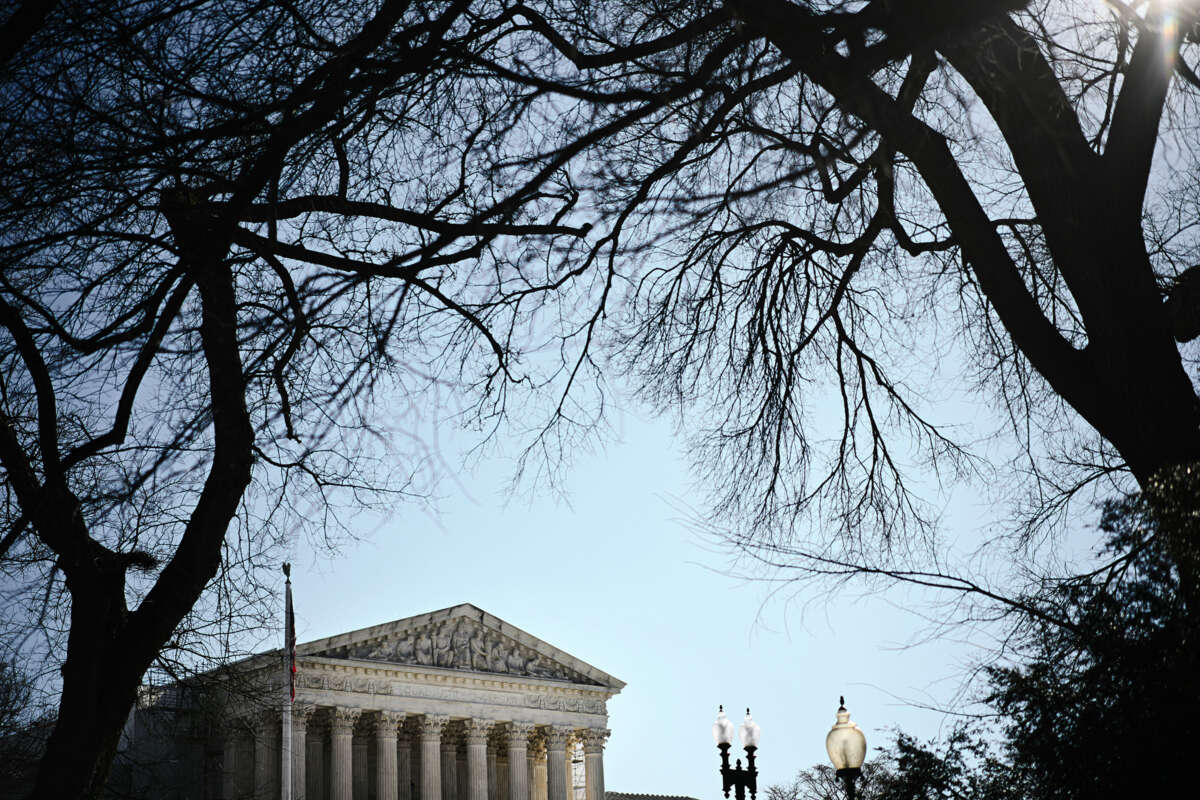The U.S. Supreme Court on Wednesday sided with a former Indiana mayor convicted of accepting a bribe from a business shortly after it was awarded municipal contracts, a ruling that one dissenting justice called “absurd” and critics said weakens public corruption laws.
Ruling 6-3 along ideological lines in Snyder v. United States, the justices overturned the bribery convictions of former Portage, Indiana Mayor James Snyder, a Republican who took $13,000 from a trucking company after helping it obtain more than $1 million in city contracts.
Snyder maintains that the payment was legal compensation for consulting work. His lawyers contended that prosecutors failed to prove any quid pro quo agreement prior to the awarding of contracts, and that the prosecution of public officials for gratuities given after the fact criminalizes legitimate gift-giving.
“State and local governments often regulate the gifts that state and local officials may accept,” Justice Brett Kavanaugh wrote for the court’s right-wing supermajority, adding that the anti-corruption law in question “does not supplement those state and local rules by subjecting 19 million state and local officials to up to 10 years in federal prison for accepting even commonplace gratuities. Rather, [it] leaves it to state and local governments to regulate gratuities to state and local officials.”
However, Justice Ketanji Brown Jackson wrote in a dissent joined by liberal Justices Elena Kagan and Sonia Sotomayor that “officials who use their public positions for private gain threaten the integrity of our most important institutions.”
“Greed makes governments — at every level — less responsive, less efficient, and less trustworthy from the perspective of the communities they serve,” Jackson continued. “Perhaps realizing this, Congress used ‘expansive, unqualified language’ in 18 USC §666 to criminalize graft involving state, local, and tribal entities, as well as other organizations receiving federal funds. Salinas v. United States... imposes federal criminal penalties on agents of those entities who ‘corruptly’ solicit, accept, or agree to accept payments ‘intending to be influenced or rewarded’.”
“Today’s case involves one such person,” Jackson noted. “He asks us to decide whether the language of §666 criminalizes both bribes and gratuities, or just bribes. And he says the answer matters because bribes require an upfront agreement to take official actions for payment, and he never agreed beforehand to be paid the $13,000 from the dealership.”
“Snyder’s absurd and atextual reading of the statute is one only today’s court could love,” she asserted. “Ignoring the plain text of §666 — which, again, expressly targets officials who ‘corruptly’ solicit, accept, or agree to accept payments ‘intending to be influenced or rewarded’ — the court concludes that the statute does not criminalize gratuities at all.”
“The court’s reasoning elevates nonexistent federalism concerns over the plain text of this statute and is a quintessential example of the tail wagging the dog,” Jackson added.
Rolling Stone senior politics editor Andrew Perez, who covers money and its influence on politics and policy, noted:
The decision is hardly a surprise given the Supreme Court has consistently narrowed the definition of corruption under Chief Justice John Roberts — even before conservatives built a supermajority. Still, the Snyder case was exceptionally brazen and unusually ridiculous — and justices chose to hear this case amid an unprecedented controversy over reports that revelations they have routinely accepted and failed to disclose luxury gifts.
“It was a ridiculous performance and display from the justices, but it served a purpose,” Perez added. “Now, delivering gratuities to politicians is legal; politicians can procure personal cash payments from companies after acting to their benefit.”
Justices Clarence Thomas and Samuel Alito have been accused of inappropriately and possibly illegally accepting gifts or other perks from others including wealthy Republican donors with business before the court. Justice Neil Gorsuch has come under fire for failing to disclose a real estate sale to the head of a law firm subsequently involved in over 20 cases before the high court.
“With the Supreme Court’s Snyder decision, it has made clear that bribery has a green light for elected officials — if it happens after the official act,” Norman Ornstein, an emeritus scholar at the right-wing American Enterprise Institute, said on social media. “A court with utter chutzpah for its own ethics misconduct is saying ethics don’t matter in governing — big money can rule. What a disgrace.”
Our most important fundraising appeal of the year
December is the most critical time of year for Truthout, because our nonprofit news is funded almost entirely by individual donations from readers like you. So before you navigate away, we ask that you take just a second to support Truthout with a tax-deductible donation.
This year is a little different. We are up against a far-reaching, wide-scale attack on press freedom coming from the Trump administration. 2025 was a year of frightening censorship, news industry corporate consolidation, and worsening financial conditions for progressive nonprofits across the board.
We can only resist Trump’s agenda by cultivating a strong base of support. The right-wing mediasphere is funded comfortably by billionaire owners and venture capitalist philanthropists. At Truthout, we have you.
We’ve set an ambitious target for our year-end campaign — a goal of $225,000 to keep up our fight against authoritarianism in 2026. Please take a meaningful action in this fight: make a one-time or monthly donation to Truthout before December 31. If you have the means, please dig deep.
